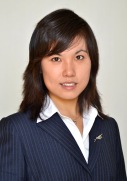
Course Descriptions
ECO 102:
Issues in Macroeconomics
Goal: To acquaint students with the structural framework and
principles involved in the determination of the level of aggregate economic
activity: national income, output, employment, and price levels.
Content: Functioning of the economy from the national policy
perspective through the study of national income and output, interest rates,
money supply, price level, federal budget deficits, and international trade
deficits.
Taught: Fall, Spring.
Prerequisite: MAT 130 or higher.
Credit: 3 hours.
ECO 104:
Issues in Microeconomics
Goal: To acquaint students with theory relating to decision-making by
consumers and firms in product markets.
Content: Study of choice in the face of scarce resources; the
analysis of the consumer trying to maximize satisfaction and of the firm trying
to maximize profits under varying market structures.
Taught: Fall, Spring.
Prerequisite: MAT 130 or higher.
Credit: 3 hours.
ECO 204:
Intermediate Microeconomic Theory
Goal: To explore in greater detail the incentives which determine
individual and firm behavior. We will do this by practicing the application of
the microeconomic way of thinking. Introductory courses rely primarily on
intuition and logic as the basis for theory;
Intermediate courses develop theory from a more mathematical perspective.
Content: This course is a continuation of the study of the nature
of decision making in markets. Primary emphasis is placed upon the development
of models which explain the behavior of consumers and producers, the importance
of market structures, and the appropriate role of the government.
Taught: Spring. Alternate years.
Prerequisite: ECO 102, 104, and MAT 205.
Credit: 3 hours.
210: Women
and Economic Development.
Goal: To study the impact of economic change on women by analyzing
how age, sex and race hierarchies modify changes in women’s roles in different
societies of Asia, Africa and Latin America.
Content: This course will focus on the effects of economic growth
on the socioeconomic status of women. Most importantly, students will study the
means by which patriarchy has persisted in various parts of Africa, Asia and
Latin America by redefining itself, even as economies have modernized. The
course will also explore the socioeconomic effect of export industries owned by
multinational firms on the lives of women in Southeast Asia and Latin America.
Taught: Fall. Alternate years.
Gen. Ed. Category:
Expanding; Women's Experiences; (PS)
Credit: 3 hours; cross-cultural; cross-listed as WST 210.
ECO 302:
International Trade
Goal: To study the theory of international trade with special
emphasis on the gains from trade, the terms of trade, the balance of payments,
foreign exchange rates, and international monetary systems.
Content: Examination of international economics from the
standpoint of theory, with a special emphasis on several current topics: the
growing economic strength of the Pacific Rim, Europe, and the rapidly changing
economics of Eastern Europe and the former
Soviet Union.
Taught: Spring. Alternate years.
Prerequisite: ECO 102 and 104.
Credit: 3 hours.
ECO 330:
Econometrics
Goal: This course provides an introduction to methods of quantitative
analysis of economic data.
Content: This course reviews basic statistical methods and probability
distributions. Topics include data management using professional statistical
software applications, multiple regression analysis, hypothesis testing under
conditions of multicollinearity, heteroscedasticity, and serial correlation.
Taught: Fall. Alternate years.
Prerequisite: ECO 102, ECO 104, and MAT 220.
Credit: 3 hours
ECO 396: Special Topics in Economics
Goal: To provide an opportunity for exploration of a topic not
offered as part of the curriculum. A student may take no more than six semester
hours in special topics courses.
Content: Examination of special topics, problems, or issues in
economics that seem particularly relevant to student needs and interests. Topics
announced annually.
Taught: Offered occasionally.
Prerequisite: Dependent on topic.
Credit: 3 hours.
ECO 490:
Senior Seminar
Goal: To encourage senior Economics majors to apply their
accumulated knowledge to critical analysis of selected issues andproblems in
economics.
Content: Topics vary depending on interests of the students
comprising the course each year.
Taught: Spring.
Prerequisite: Senior standing.
Credit: 3 hours; S-course.
EBA 606:
Managerial Economics
The student will learn how consumers choose among various goods and services,
and how firms allocate scarce resources among alternative uses. Focus will be on
the competitive nature of firms in markets whose scope ranges from domestic to
international. Students will analyze the production levels to meet demand for
that product. Production cost analysis will be examined as it relates to market
price and levels of output.
Credit: 3 hours
Credit: 3 hours
Rev. 09.12
